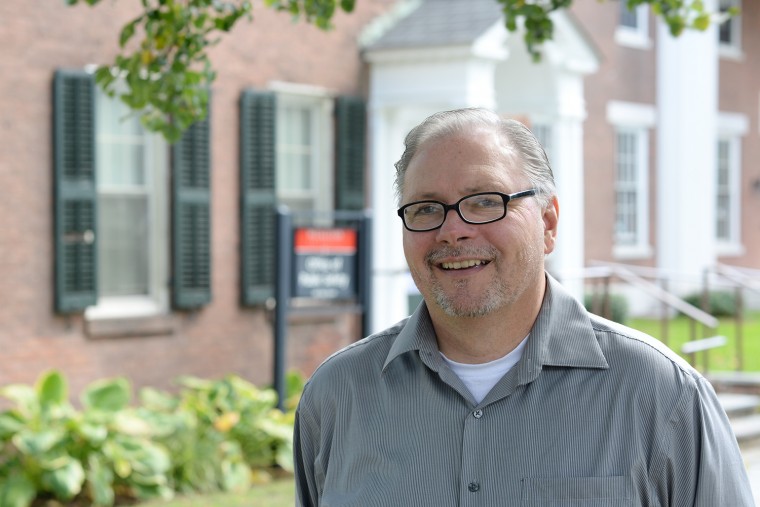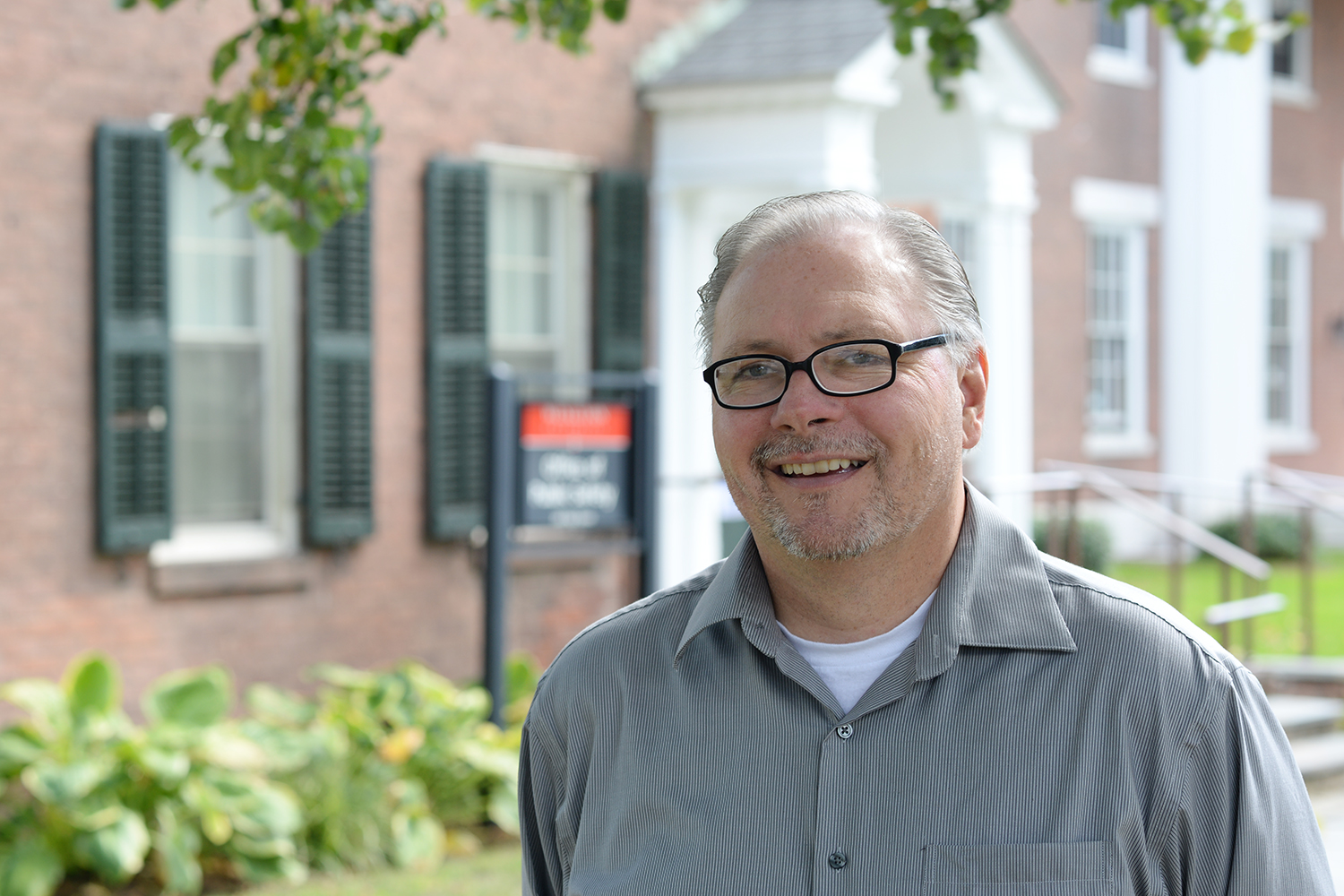PSafe Director Rohde Strives to Keep Wesleyan Community Safe, Engaged


In this News @ Wesleyan story, we speak with Scott Rohde, who marks his one-year anniversary as Wesleyan’s Director of Public Safety on Oct. 1. Rohde reflects back on his first year at Wesleyan, changes he has overseen, and what’s to come.
Q: What has struck you most about the Wesleyan community during your first year here?
A: I was stuck by the significant focus on students, and student success. Not only the faculty, but administrators and staff, want every student to succeed here at Wes but also in the global community. The liberal arts tradition is vibrant here and offers a “true college experience.” Having worked for the prior 16 years in public higher education the difference is pretty stark, and a change I was looking for.
Q: What would you say are some of the biggest challenges facing your department?
A: I would say keeping students, faculty and staff engaged when it comes to keeping themselves and their property safe. Public Safety officers have a unique opportunity to connect with the campus community, identify problems and partner with our stakeholders to solve them. It is easy for students to become complacent. Awareness does not follow a 9-5 schedule or end right after a training session or at the conclusion of a self-defense class–it is ongoing. I hope to increase awareness at every opportunity possible, involving every member of Public Safety.
Another big challenge involves technology. In the safety field there are countless applications that can provide better overall security. The challenge is to recognize and recommend the best application for our campus, keeping effectiveness, cost and overall campus goals in mind. Further we need to keep abreast of how criminals use technology to increase their advantage in conducting criminal activity.
Q: What are your goals for the year to come?
A: Improve our communication strategy with the campus community. Increase student involvement and interaction with Public Safety. Continue the important collaboration with the Public Safety Advisory Committee that started last academic year. Expand assessment opportunities and review findings. And continue to implement a problem solving model through community policing.
Q: How would you describe the relationship between the student body and Public Safety? What steps are you taking to strengthen that relationship?
A: I would say our relationship with students is strong. We have strived to be more visible, active and connected with students and student organizations. We sponsored a number of student centered events last year that were very well attended. We will be planning even more this academic year. The Public Safety Advisory Committee started meeting regularly last year. The committee offers students from different prospectives an opportunity to express their views and suggestions about the services we provide.
Further, our community policing framework focuses on involving all members of the community, including students.
Q: I understand Public Safety has created a new statement of commitment. Can you tell us briefly about the purpose of this statement and what it covers?
A: When Public Safety worked on its new mission and vision statements we examined our overall commitment to the campus and felt it was important that we share specific responsibilities we feel are crucial to us being successful in building and maintaining partnerships. Critical points to our commitment include:
- Using a community policing approach to our work, that embraces views from many perspectives so that problems can be resolved using flexible and community-based solutions.
- Responding to disturbing behavior not personal identities, and thoroughly rejecting racial profiling or personal favoritism of any kind.
- Encouraging all feedback regarding our programing and actions by staff members that may cause concern. We promise a complete and fair investigation.
- Partnering with the Middletown Police Department, including inviting them to participate in social justice training opportunities.
I encourage you to view the entire statement here.
Q: Please talk about your plans for using social media to communicate with the Wesleyan community about public safety matters.
A: Public Safety has developed a Facebook page that went live at the start of the semester. We also are examining other social media options for both the Public Safety Department and Transportation Services that provides the “RIDE,” a campus safe ride program on and near the Wesleyan campus. We are also actively exploring improvements for our current text alert emergency notification system. Finally, our webpage has expanded links and information including a monthly feature (during the school year) “Safety news you can use.”
Q: What is the nature of your department’s cooperation with the City of Middletown and its police?
A: We have an excellent working relationship with the Middletown Police Department. Command staff meet on an ongoing basis to keep open communication and share concerns. Our departments have also participated in joint training. Public Safety is always looking for opportunities to improve our relationships with the broader community. Many of our staff live in the Middletown area.
Q: Is there one thing you’d like the Wesleyan community to know about Public Safety and its role here on campus?
A: The men and women at Public Safety are trained to work in the unique environment of higher education, and want to work in this setting. Each staff member receives instruction in crisis intervention, campus legal issues, reporting methods, crime prevention, medical emergencies and risk assessment. They are ready to react appropriately in high-stress situations. Our goal is to provide unmatched quality and reliability. We value your feedback and hope you will let us know how we are doing.
Q: How is campus policing changing today—both at Wesleyan and around the country?
A: The public is becoming more discerning. Hence they expect the right personnel with the right technology and tools to do the best job in an unbiased and accountable manner. This is true in every community and on every college campus. Not only do I understand these concerns but I share them. Campus policing must work closely with the entire campus community to be effective and have public trust. It is very challenging, but immensely rewarding.

